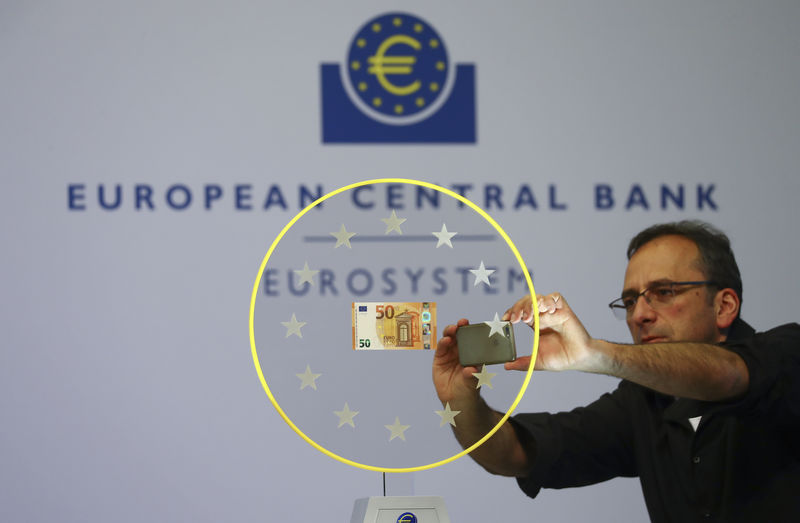(Bloomberg) -- Terms of Trade is a daily newsletter that untangles a world embroiled in trade wars. Sign up here.
European Central Bank policy maker Madis Muller joined the swelling ranks of officials skeptical over the need for a large stimulus package by saying a resumption of bond purchases now would be disproportionate to economic conditions.
The Estonian central-bank head signaled he is comfortable with cutting interest rates when the Governing Council meets on Sept. 12, but said the ECB can’t be hostage to market expectations. Banks including Goldman Sachs (NYSE:GS), Nomura, and ABN Amro predict a new round of quantitative easing, while investors are pricing in at least a 10 basis-point cut in the deposit rate.
Muller, 42, said the economic outlook has worsened but there is no recession and the euro area isn’t facing the deflation risk that would normally be a trigger for asset purchases. His resistance to major monetary easing puts him in the same camp as his German colleague Jens Weidmann, Dutchman Klaas Knot, Austria’s Robert Holzmann and Executive Board member Sabine Lautenschlaeger, who have argued the central bank should turn to bond-buying only as a last resort.
“I don’t think we have a strong case for reactivating QE now,” Muller, who joined the Governing Council in June, said in an interview in Tallinn on Tuesday. “In addition to being disproportionate in a situation where there is no deflation risk, in my opinion there is also a concern over ineffectiveness. It just might not be very productive.”
Growing opposition to QE could spell trouble for President Mario Draghi, who has primed investors for some form of support for the economy as it’s battered by trade tensions and Brexit. Bond purchases were capped at 2.6 trillion euros ($2.9 trillion) at the end of last year, and resuming them could require the ECB to raise self-imposed limits on how much it can buy. The rules are designed to prevent the central bank from breaching laws against financing governments.
Muller showed reluctance to overstep the limits, saying “abandoning them would be very difficult.”
Little more than a week before it meets in Frankfurt, the Governing Council is clearly split on the way forward. Finnish central banker Olli Rehn argued last month that officials should deliver a significant stimulus package that overshoots market expectations. Vice President Luis de Guindos said investor bets should be treated with a “pinch of salt,” and Spain’s Pablo Hernandez de Cos said all options should be kept on the table.
Slovakia’s Peter Kazimir has urged officials to reach as broad an agreement as possible for the institution’s credibility.
Muller said there is still room to cut rates further below zero, at the same time warning that the ECB should be wary of easing the pain for banks. Lenders suffer because the charge on their deposits squeezes their profit margin but Muller said any exemptions would undermine the stimulative effect of easing.
He doesn’t have the right to vote in September under a rota system that will also exclude French governor Francois Villeroy de Galhau and the central bank chiefs of Greece and Ireland. In practice, the Governing Council rarely resorts to a poll, aiming instead for consensus or unanimity.
Muller said the ECB “can’t share the responsibility for monetary policy with the markets” and he “wouldn’t overemphasize” the sentiment among investors.
“I’ll go to this meeting with an open mind,” he said. “One can’t have a definitive opinion before seeing the latest data and latest forecasts, but it seems that market expectations have gone too far.”
